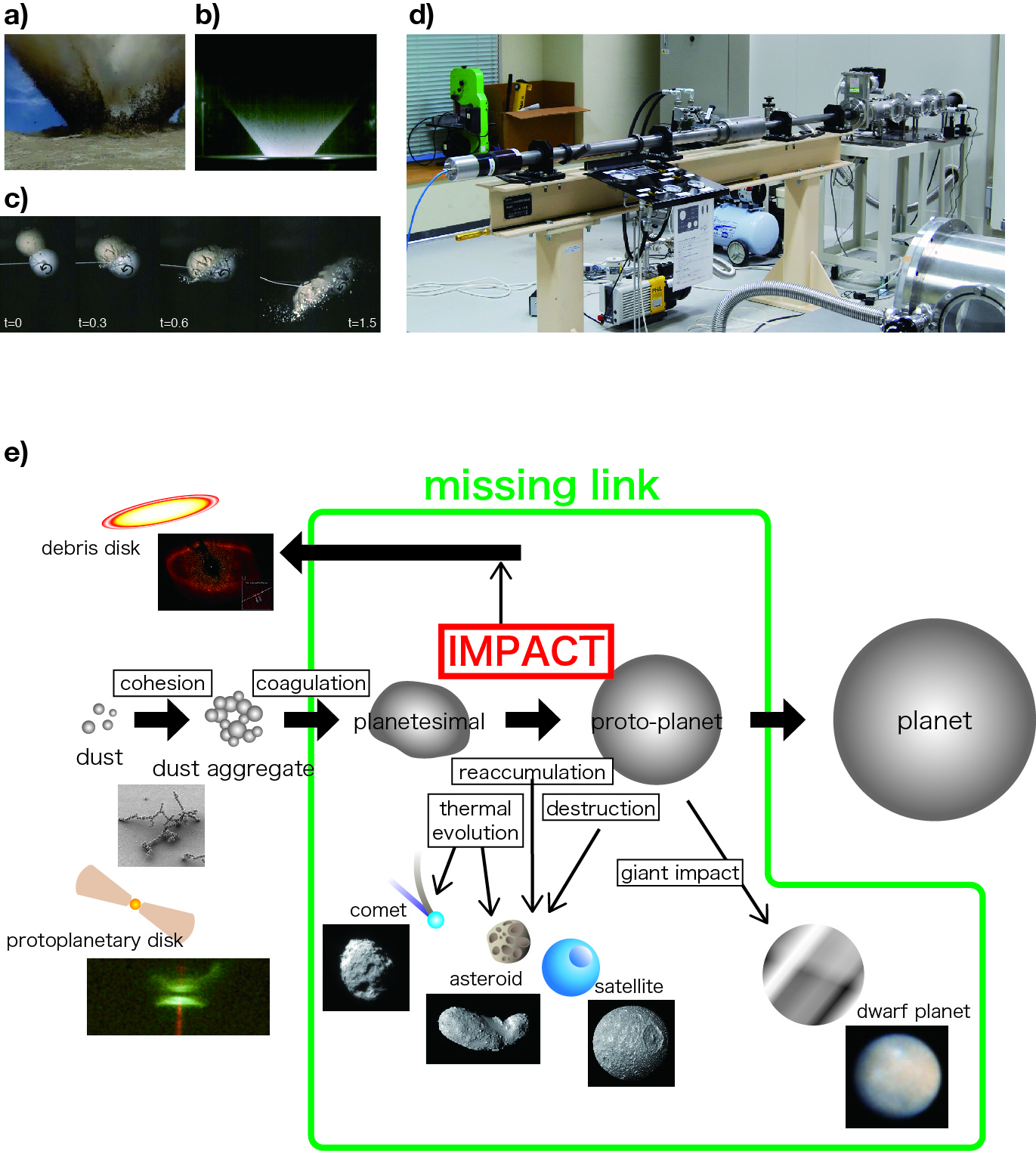_Λεw@w€Θ@f―wκUEf―wΘ@Home@Page
Department of Planetology, Graduate School of Science / Faculty of Science, Kobe University
RESEARCH GROUP
Experimental Planetary Science Laboratory@
- Members:
Prof. Masahiko Arakawa (URL), Associate Prof. Minami Yasui (URL), Assistant Prof. Kenji Kurosaki(URL)
3 Researcher, 2 Doctor course students, 8 Master course students, 4 Undergraduate students, 1 Technical staff
- Office: Science and Technology Bldg
- Room 101 (Arakawa), 102 (Yasui, Technical staff), 104(Kurosaki), 203(Researchers), 109E110 (Students)
Research Interests:
@ We study the origin and the evolution of planets in the solar system including the Earth, satellites and asteroids, by laboratory experiments and planetary explorations. Particularly, we focus on the impact phenomena which are an important factor to clarify the origin and the evolution of the solar system, and examined the relationship with the variety of bodies in the solar system.
Currently, we collaborate with the researchers in ISAS, JAXA, PERC in Chiba Tech., Kouchi Univ., Univ. Occup. Env. Health, Aichi Toho Univ., etc., and develop the devices, SCI (Small Carry-on Impactor) and DCAM3 (Deployable Camera), equipped on Hayabusa-2 explorer.

a) Ground experiments of SCI (Small Carry-on Impactor) equipped on Hayabusa-2
b) Impact cratering experiments in laboratory (Target: 100-μm glass beads)
c) Impact experiments of equal-sized gypsum spheres
d) Two-stage gas gun (A projectile can be accelerated at the highest impact velocity of 7 km/s !!)
e) Illustration showing our study scope. "Missing link" means the mysterious zone in which the evolution
processes are not clarified yet.
Current Projects:@
- Basic research for the proposal of planetary exploration spacecraft and impact experiments in space missions
- Collision processes in planetesimal formation and evolution
- Formation of craters and regolith deposition on asteroids and small icy bodies
- Evolution of glaciers, ice sheets, and permafrosts on Mars
- Origin and evolution of Jovian and Saturnian icy satellites, comet nuclei, and Kuiper Belt Objects (KBOs)
@@@@@
Department of Planetology, Graduate School of Science, Kobe University
ADDRESS
1-1, Rokkodai-cho, Nada-ku, Kobe, Hyogo, Japan, 657-8501
TEL: (+81)-78-803-6483
FAX :(+81)-78-803-5791